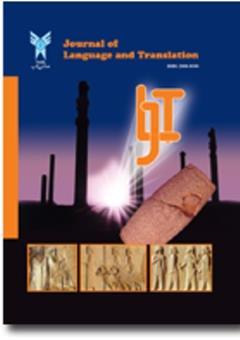Collocations and Colligations in the Scientific Research Articles in Terms of Lexical Priming Theory: Analysis of Hard and Soft Sciences
Subject Areas : All areas of language and translationLeila Ghaemi 1 , Nesa Nabifar 2 , Davud Kuhi 3
1 - faculty member of Azad university in Miyaneh
2 -
3 -
Keywords: Colligations, Collocations, Introduction Sections, Hard and Soft Disciplines,
Abstract :
Lexical Priming Theory claims that the collocational primings of a word depend on the genre or discipline in which it occurs. In this study, attempts were made to compare the collocates and colligates and the positions of the collocates prior and subsequent to the node word in two specialized corpora of soft science and hard science to see if they are realized in the same or different ways. To serve this purpose, the introduction section of 1000 RAs of two disciplines of soft and hard were gathered from disciplines of applied linguistics, sociology, and psychology (soft science) and computer science, chemistry, physics and medical science (hard science) in order to find a relationship between these two types of RAs with differences in discipline and the authors’ use of collocations and colligations. The findings revealed that the frequency of collocations that employed in the introduction sections of soft and hard sciences were not the same and the researchers of soft science in designing their research articles’ introduction sections employed more collocations in comparison to the researchers in hard science. Hence, based on the results of Chi-square data analysis, it can be claimed that there is a significant difference between two groups of authors in using colocations. However, in terms of colligations, both groups used colligations with the same rates and similarities in the right and the left positions of the collocations, hence it can be claimed that there is no difference in two sciences in terms of high dominant colligations.


